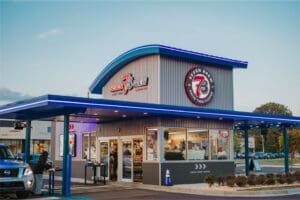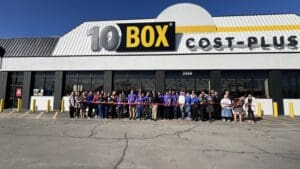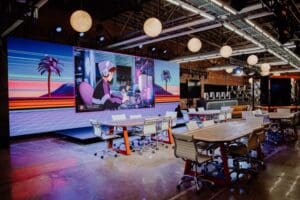Kirby Davis
Reed Architecture
Five years ago, Reed Architecture and Interiors completed a downtown development master plan for Muskogee, OK. The Reed team also guided the implementation of that plan’s first element: a package of five elaborate street signs called the Muskogee Gateways.
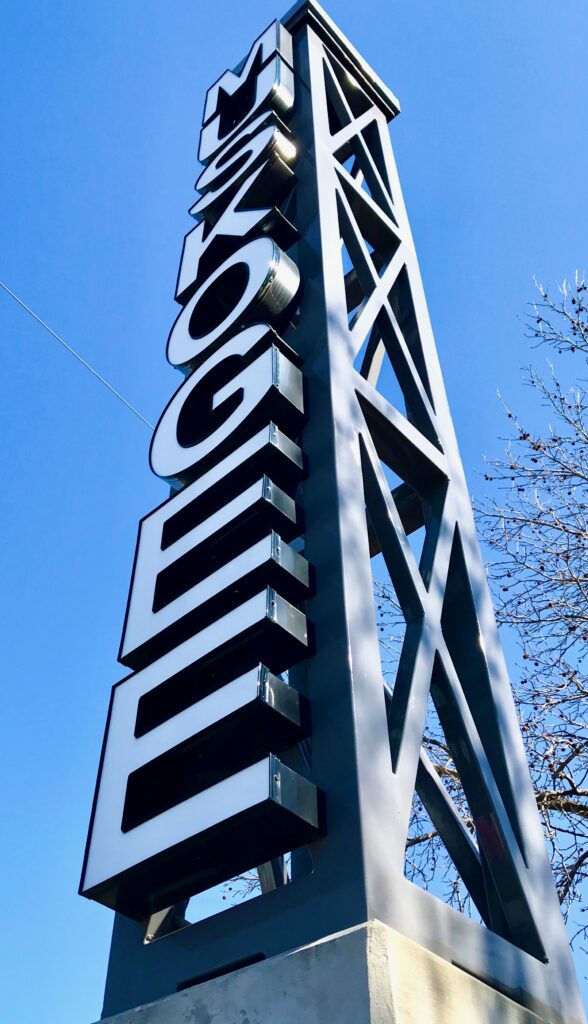
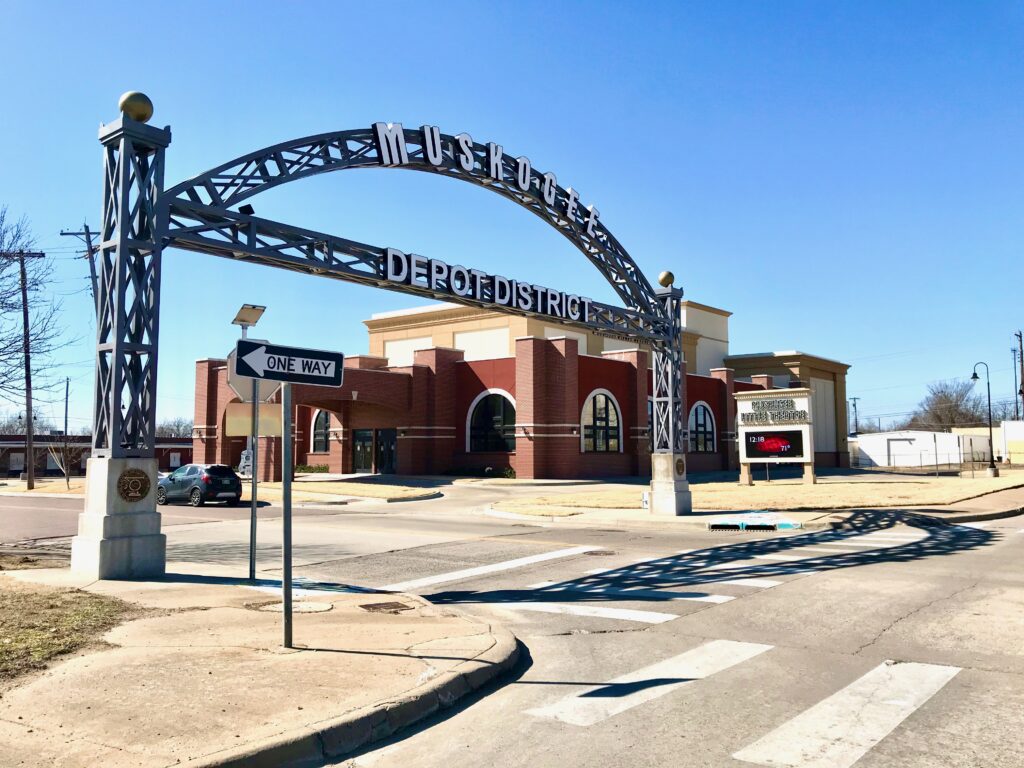
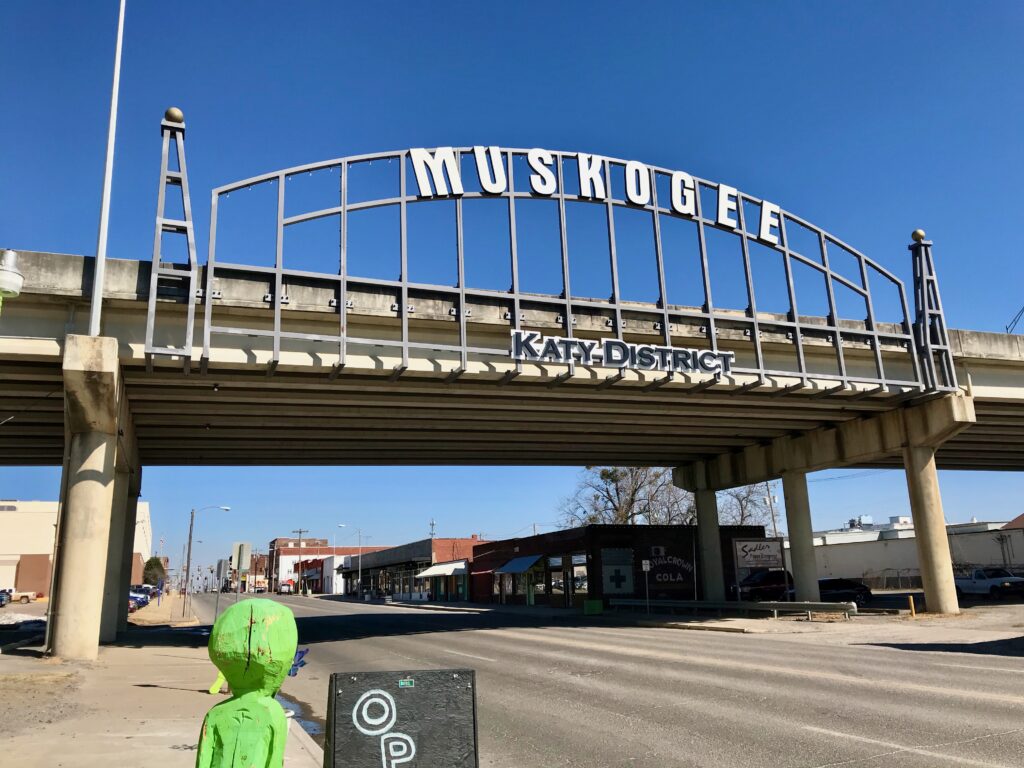
“The Gateways started out as a downtown Muskogee engineering assessment project,” said Reed Architecture founder David Reed. “We were asked to evaluate previous master plan studies and identify action plans to move forward. We floated out some concepts of these gateways/portals to help identify specific districts and everyone became so excited about the gateways that they became the project everyone supported.”
These markers – two overhead landmarks and three pairs of pylon signposts – help residents and newcomers better connect with the city’s historic central business area and two distinctive cultural/trade districts.
“Such projects help give areas an identity that people associate with appealing things,” said James Kenderdine, professor emeritus of marketing and supply chain management with the University of Oklahoma’s Michael F. Price College of Business.
That, in turn, should boost downtown business and tourism traffic.
Built and installed by local artisans, the Gateways drew strong positive responses. The Greater Muskogee Area Chamber of Commerce displayed these signs in several advertisements and other marketing efforts, as did many local businesses and tourism organizations.
“We’ve used it from Day One,” said Coni Wetz, executive director of the Muskogee Little Theatre, which sits in the background of the Depot District sign. “It’s on our website and in our advertising.”
While COVID’s dramatic impact on business and travel makes it hard to quantify results, many officials said the Gateways continue to benefit downtown Muskogee.
“I don’t necessarily think it draws people to see a sign, but it’s an added element to that downtown experience,” said chamber President and Chief Executive Angela Wilson. “They’re assets that help you build traffic and business.”
Kenderdine said the Muskogee Gateways tackle problems social scientists have grappled with for decades: how someone’s mental image of an area impacts decisions and actions. “To greatly oversimplify, ‘what a city is’ depends on the collective/composite ‘image’ of its citizens,” he said.
The Gateways, and additional wayfaring signs installed afterward, have helped reshape how residents and travelers perceive downtown and its districts, said Leon Davis Jr., economic and community development manager for the City of Muskogee.
“Absolutely, I think they’re effective,” he said. “It’s something I hope to expand on.
“One of the things I’m working on right now is to build upon these different areas, create these themed districts, and make these themes more commonplace in people’s conversations,” said Davis. “They (the Gateways) are good starting points.”
Wetz said those benefits continued through COVID – which she appreciates.
“Consumer traffic has been picking up,” she said. “It’s much better than it was in 2020.”
Wetz also thanked the Gateways for aiding activities at the Depot Green, a park completed last year beside the Oklahoma Music Hall of Fame, the Three Rivers Museum, and her theater. Both Wetz and Wilson see great potential for the Green, which has hosted many arts and entertainment events.
“The signs are helping traffic find the Depot Green,” Wetz said. “And they help people find us.”


